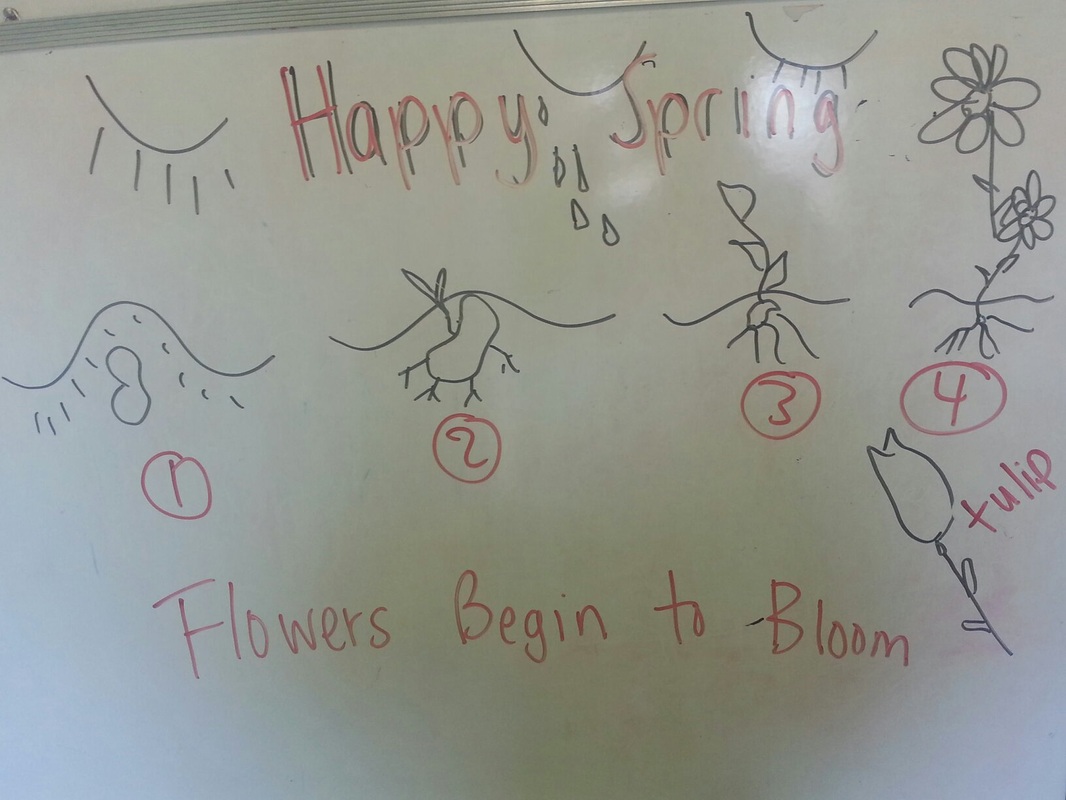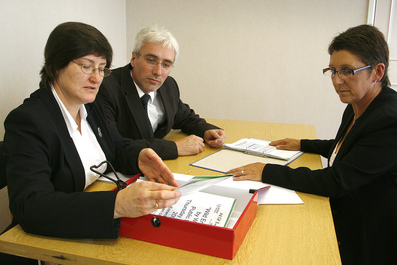 A couple weeks ago, I had the distinct honor of helping one of my Language-Impaired students with her resume. It took us about two weeks’ worth of extended therapy sessions to create a resume that met her needs despite her lack of professional experiences, but we did it. Besides the feeling of satisfaction that I got from putting a vibrant young woman on track for her first job, I learned that the key to drafting a winning resume is to write from the viewpoint of a hiring manager. If you were the person who had to spend thousands of dollars in advertising in hope of recruiting a top candidate for your company, what skills and personality traits would you be looking for? According to Ramit Sethi, author of “I will Teach You to Be Rich,” a hiring manager will spend roughly 10 seconds scanning your resume. What do you want your resume to say about you? Do not fall into the mental trap that you will land a job because speech-language pathologists are in high demand and carelessly put your resume together. Turn your resume into a magnet for the best companies by doing the following: Avoid content indigestion (Ramit Sethi recommends that you make each word earn its place on your resume and if the information is irrelevant for the position you are applying for, leave it off your resume) Keep your resume neat (stick with Times New Roman or Arial fonts; no fancy graphics) Target it for your specific audience (recruiters from various public/private organizations or speech therapy business owners) Have an objective (what type of position would you like and in what clinical setting; know what you want) Avoid overused phrases (we are all hard workers, team players and highly qualified; focus on how your clinical skills will benefit your future employer) In sum, the secret to writing a resume that gets you noticed is to take on the perspective of your future employer. Remember, you would not want to read endless lists of people’s descriptions of how they traded their time for money. Briefly state your objective, highlight your value and attract the job of your dreams. Special Thanks to Espinoza for writing this article about resume writing! About Author: Espinoza Pierschke is a savvy Speech Therapist, Certified SEO Copywriter and author of “Windows Can Become Doors: A Blueprint for Beginning Speech Therapists.” She is passionate about making a difference and teaching fellow therapists how to survive life after graduate school.
0 Comments
Spring is here and the above photo was a picture of my whiteboard drawing as an icebreaker for my students. This drawing above initiated topics among my students such as: "My mother is growing tulips in her garden" or "Flowers need water and sun to grow." These conversations sound like some good language and some good speech sounds all in one.  I brought in artificial vegetables for my younger students to describe and they really enjoyed telling me all about the different types of vegetables. The artificial vegetables I got from Ikea in the children's section.  One of my favorite apps that a lot of my younger students have enjoyed is Dr. Panda's Veggie Garden. This app was very good to tie in all of the information that they have been learning in class about vegetables and fruit and how plants grow. Here is the link: https://itunes.apple.com/us/app/dr.-pandas-veggie-garden/id585512923?mt=8 Cost of this app: $1.99. There are 12 different fruits and vegetables that the students can grow and learn about in this app. It also provides some good vocabulary (i.e. plowing, seeding) and the students can put the fruits and vegetables in the correct category. To make it even more engaging, I chose one student to be the farmer. 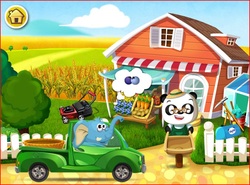 First the elephant pulls up and is thinking off a fruit or a vegetable. The farmer (a student) can name what the elephant is thinking of in his mind. Below are some of the steps that the students had to take in order to make the blueberries grow. 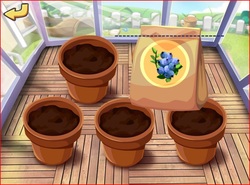 Open the bag 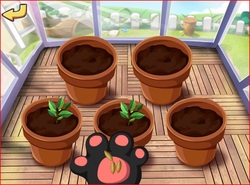 Put the seeds in the pot 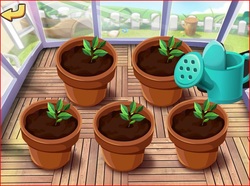 Use the watering can  Sunlight to help the blueberries grow 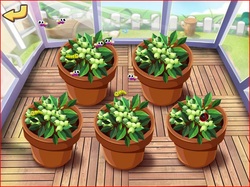 Keep the bugs away from eating your blueberries 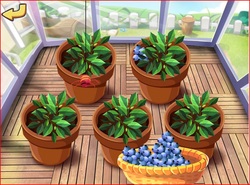 Pick the blueberries and put them in the basket for the elephant 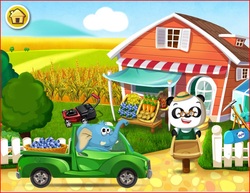 Put the blueberries on the back of the elephant's truck This activity is also great for sequencing. If you have students who are working on different speech sounds, the farmer (a student) can pass out blueberries or other fruits and vegetables with the various speech sounds and words on paper blueberry cut outs.
Here is a link for 79 Free Fruit and Vegetable Worksheets http://busyteacher.org/classroom_activities-vocabulary/food_and_drinks/fruit_and_vegetables-worksheets/ What are some of your favorite Spring Apps?  The letter we have been waiting for...but the answer that we did not want to hear. Now is around the time that students are anxiously waiting to be accepted into school. this is an exciting time, anxiety-driven, and the next level of your chapter as a student. So when we get those letters that have the decisions inside, but not the answer we are looking for...What do we do next? Some of the thoughts that come up when we see the words not accepted or we can not offer you admission: -What am I going to do if I do not get into any other school? - What did I do wrong not to get in? Thoughts flow through our head and it does not help to make it easier when we think of all the negativity thoughts  Email the college to find out why you were not accepted and/or call. Try to wait a few days after you found out you were not accepted, because you can have a clearer perspective and you could write down some of the questions that you would like to ask the admissions committee. Sometimes when we call when we are in the moment, when something just happened that we are not happy about, our words can be a little unclear and we may not convey our message as clear as we would if we waited.  If you applied to other schools, that is great news because you will be getting more letters in the mail soon. Some schools even have where you may be wait listed, which is still good news because others could decide that they do not want to attend the school. If you are anxious to see what number you are on the wait list, sometimes schools will let you know if you call and ask. My motto is, "It never hurts to ask", the worse someone can say is we can not provide you that information at the time or "no."  If you only applied to one school and did not get in then you can possibly look into going to your nearest community college or taking some classes online that all are related to the field. Shadowing other Speech Language Pathologists is a great option as well to keep you abreast of the material, until you begin to apply for schools again. Maybe you could even apply to a receptionsist job in a clinical setting so that you can still be in a setting that allows you to visualize becoming a Speech Language Pathologist. 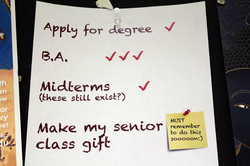 Start applying again as soon as possible and also look for ways to improve for the next application period. If you can maybe take the GRE or SAT again, take some extra classes that are related to the field of Speech Language Pathology, fine tune your personal essay, ensure that your recommendation letters are a reflection of all of the skills that you possess. Positive affirmations everyday to reduce any negative thoughts from straying into your head. And whatever you do, do not compare yourself to someone else who did get into school. This is not about anyone else, but yourself. You can do this, do not give up!!!! In the meantime, head over to SLP Echo's blog post Desperation or Determination. Also below are some other websites to check out for another perspective on not getting into school: What to Do if You Don't get a College Acceptance by Peterson's Staff. Retrieved from http://www.petersons.com/college-search/dont-get-college-acceptance.aspx on April 11, 2013 On the Joys of Not Getting What You Want by Lawrence J. Momo. Retrieved from http://thechoice.blogs.nytimes.com/2012/12/13/on-the-joys-of-not-getting-what-you-want/ on April 11, 2013 |
Categories
All
Archives
November 2021
|
 This work is licensed under a Creative Commons Attribution-NonCommercial-NoDerivs 3.0 Unported License. |
© Copyright 2010-2020 futureslps.com All Rights Reserved Worldwide
